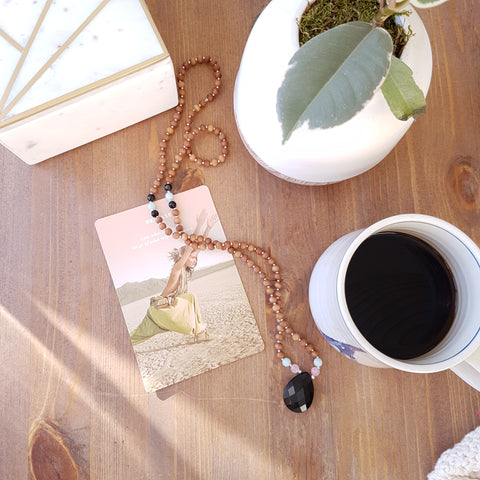The science behind your daily meditation practice
Want to know how I could tell that I had been slacking on my self care and mindfulness routine for too long? I was SO impatient. Every whine, demand and tantrum felt like nails on a chalkboard and I found myself snapping and acting reactively instead of taking the time to act intentionally.
Then I started to disconnect by zoning out on my phone, or in front of the TV, and the overwhelm started to take over.
Luckily, since I started making mindfulness a priority, even in times when I’ve let my daily mindfulness practice fall, I’m still able to stay relatively calm and patient when things don't go as planned.
I also found that the times where I was starting to slack on my practice, were actually the times I needed them most. Not that surprising. But something I definitely need the reminder of from time to time.
Something I did find surprising however, is that there is a scientific reason why when I started making the time in my already overwhelming schedule for mindfulness and meditation I was better able to cope and stopped feeling so out of control.
In 2011 a team of researchers at Harvard University found that a regular meditation and mindfulness practice can actually change the physical structure of the brain by increasing the cortical thickness of the hippocampus (the part of the brain that controls emotional regulation and self-referential processing) and decreasing the brain cell volume in the amygdala (the part of the brain responsible for fear, anxiety and stress).

The team also found in a follow up study that changes in areas of the brain responsible for mood and arousal were linked to self reported improvements in the participants emotional and psychological well being.
Pretty amazing stuff right? The part I found most incredible about the study is that it only took eight weeks of regular practice for researchers to see these changes taking place.
One of the things that made me fall in love with mala beads is that they make starting a meditation practice much less intimidating since they provide a physical means of quieting the “monkey-mind” that can make meditation so challenging in the beginning (Click here to find your perfect match).
I find it so comforting to know that by doing something as small as taking the time to slowly drink my coffee in the morning or taking five minutes to myself so I can meditate means I’m physically changing my brain so I can more present and patient with both myself and my family, even after those moments end.
















